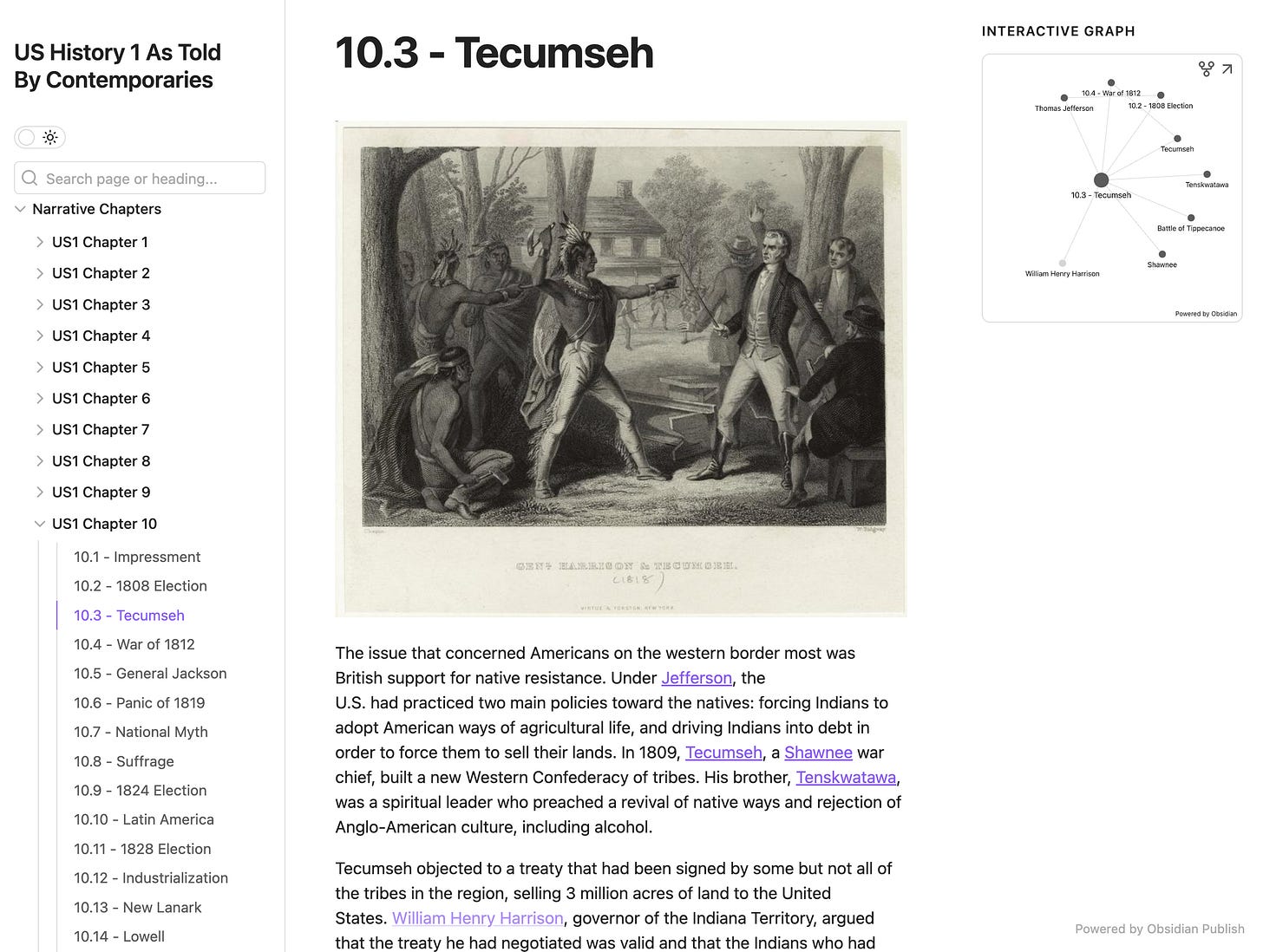It's coming along. There are over a thousand pages now, including narrative from my lectures (in green), additional information on topics of interest (in blue), and about 135 Primary Sources (in orange). The sources have audio files where I read the source, and there are ten lecture videos as well. I'm about 2/3 of the way through the bare-bones impleme…
Keep reading with a 7-day free trial
Subscribe to Lifelong Learners to keep reading this post and get 7 days of free access to the full post archives.


